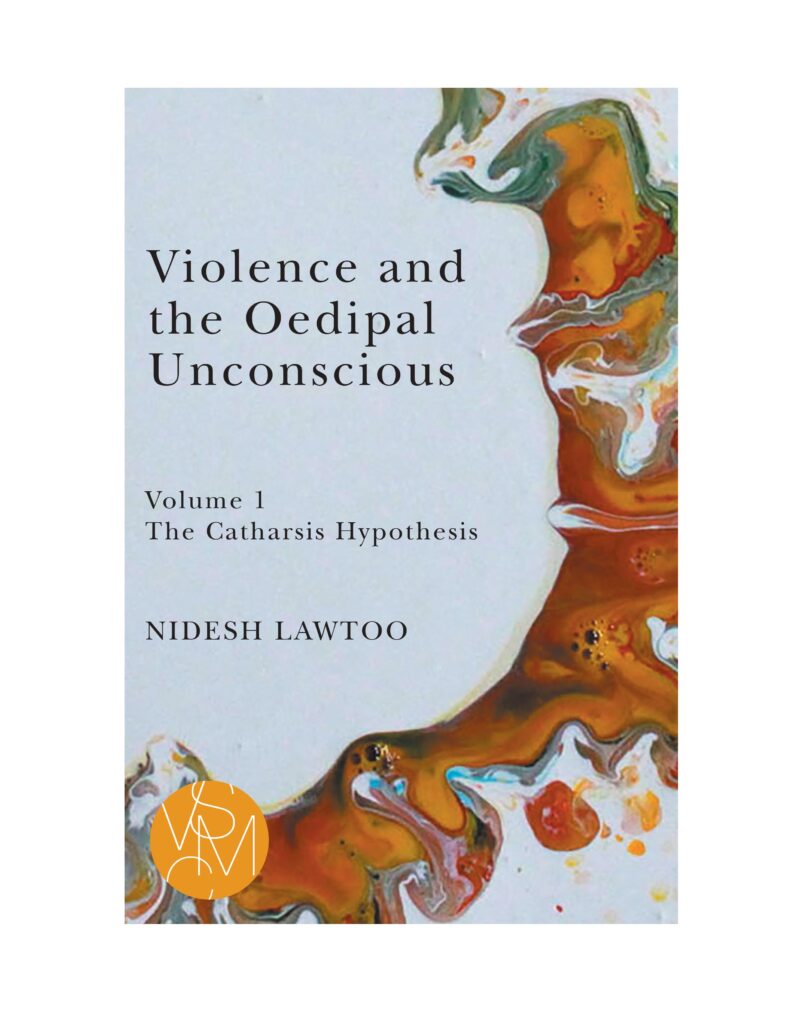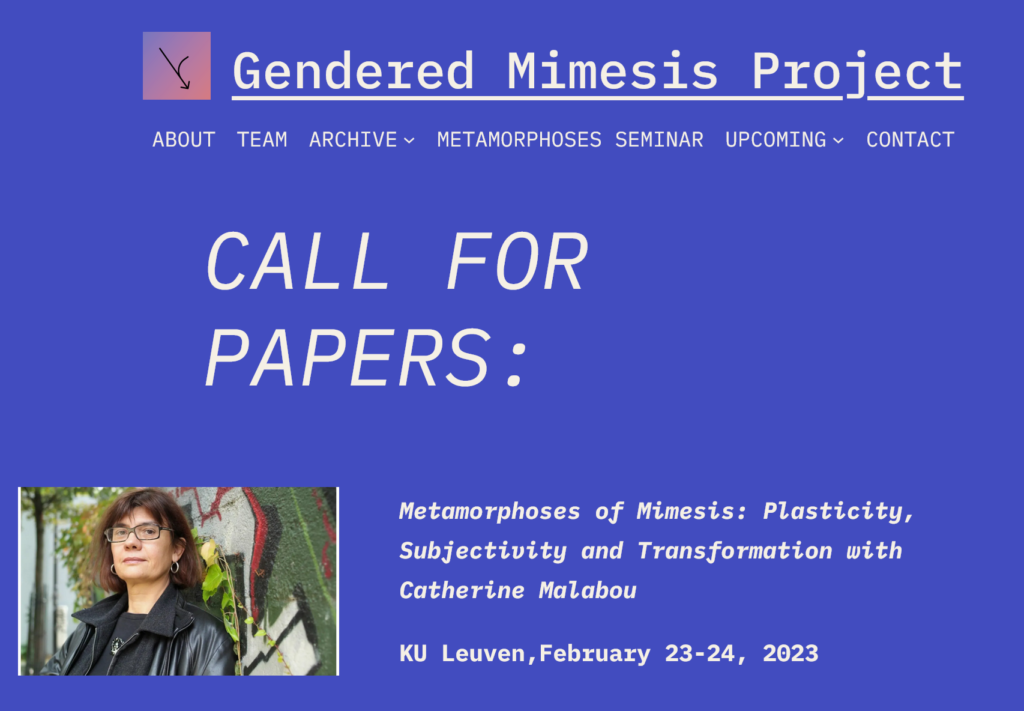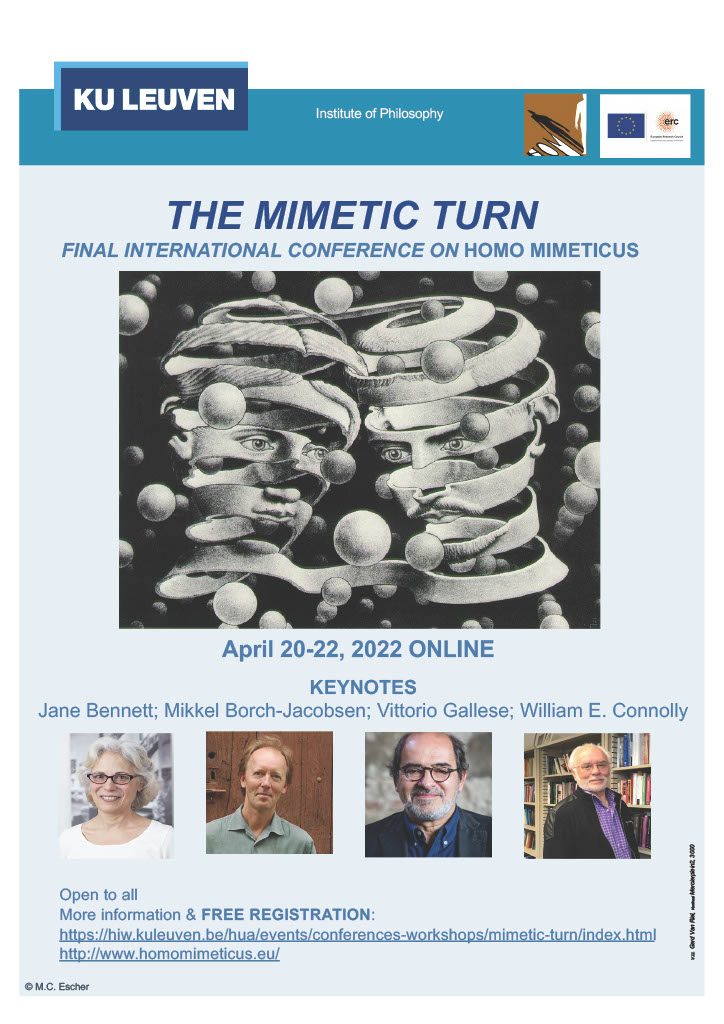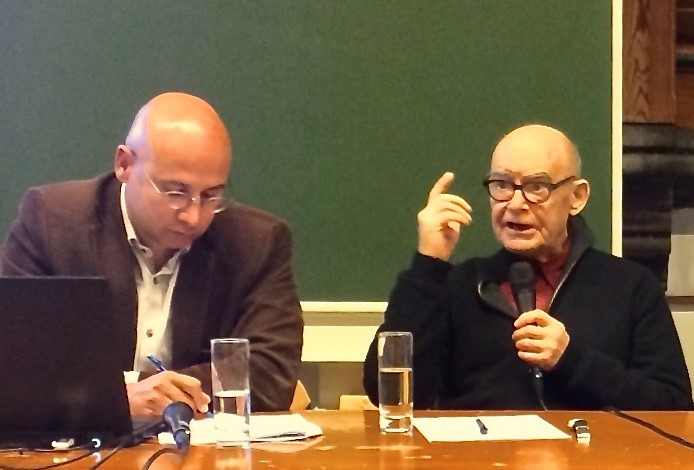What’s in a voice? And if the echoes a voice generates are neither
singular nor plural but singular plural, what shared voices are at play in
Jean-Luc Nancy’s untimely reflections on the affective participation, or
methexis, animating the agonistic confrontation between philosophy and
literature? Part of a dazzling collection of essays thinking with Nancy, in this chapter Nidesh Lawtoo reveals the partage des voix internal Lacoue-Nancy. Chapter available HERE.
Tag Archives: Continental philosophy
Violence and the Oedipal Unconscious: vol. 1, The Catharsis Hypothesis

In his latest contribution to mimetic studies, Violence and the Oedipal Unconscious (MSU P, 2023), Nidesh Lawtoo reframes current debates on (new) media violence by tracing the philosophical, aesthetic, and historical vicissitudes of the “catharsis hypothesis” from antiquity to modernity into the present via Aristotle, Nietzsche, Bernays, Freud, Girard, Morin among others. In the process, he outlines a new theory of violence, mimesis, and the unconscious that does not have desire as a via regia, but rather, the untimely realization that all affects spread contagiously and thus mimetically.
HOM Videos 8, The Psychology of Mimesis: Mikkel Borch-Jacobsen
In the eighth episode of HOM Videos, the philosopher and historian of psychoanalysis Mikkel Borch-Jacobsen (University of Washington) discusses with Nidesh Lawtoo the genealogical foundations of psychic mimesis: from his studies at the University of Strasbourg with Lacoue-Labarthe to the birth of psychoanalysis (out of Charcot’s and Bernheim’s theories of hysteria and suggestion), from Freud’s account of identification to Lacan’s theory of the mirror stage to Big Pharma, mimesis turns out to play the leading protean role in the modern and contemporary pathologies of homo mimeticus.
Gendered Mimesis New Website & CfP for Malabu Conference

/https://genderedmimesis.com/call-for-papers/
Introducing the Mimetic Turn (Nidesh Lawtoo)
If, for a long time, mimesis has been restricted to the logic of visual representation, aesthetic realism, and the metaphysics of sameness it presupposes, the ERC-funded project Homo Mimeticus overturns this perspective to foreground a re-turn to an immanent, affective, embodied, and relational conception of mimesis at play in different processes of becoming other. This introduction to The Mimetic Turn Conference (April 2022) presents some of the concepts driving this new theory of homo mimeticus.
Jean-Luc Nancy on The Myth of Community
Jean-Luc Nancy is internationally known for launching the concept of “community” on the philosophical scene. But what is the mythic experience that gave birth to his community in the first place? Where was this scene set? And who are its protagonists? In this singular-plural Prelude shot in the summer of 2020, Nancy begins to narrate the myth of the Strasbourg community to Nidesh Lawtoo, addressing a world that “is soon going to disappear”…
The Mimetic Turn: HOM Final Conference, April 20-22.

The ERC-funded project Homo Mimeticus: Theory and Criticism (HOM) hosted by the Institute of Philosophy and the Faculty of Arts at KU Leuven, Belgium, is pleased to announce its final international conference titled The Mimetic Turn (April 20-22, 2022; ONLINE). Keynotes and Invited Speakers include Mikkel Borch-Jacobsen, Vittorio Gallese, Jane Bennett, William Connolly, Henry Staten, among other internationally renowned theorists and critics. Recordings here
HOM Videos 6, Feminist Politics of Mimesis: Adriana Cavarero
In the sixth episode of HOM Videos, Nidesh Lawtoo (KU Leuven) meets the Italian feminist philosopher and political theorist Adriana Cavarero (U of Verona). From Plato to Arendt, Cavarero discusses the relational ontology that inclines the subject toward the other, the dangers of mass behavior, and the possibilities for a new feminist ethics. The city of Verona provides a background to Cavarero’s reflections on mimetic inclinations at play in a feminist politics of mimesis.
Nietzsche on Mimetic Metamorphoses Part II
For Nietzsche philosophy was a diagnostic activity that entailed looking at sickness from the perspective of health (and vice versa) to propose cures. In Part 2 of this talk, shot in Sils Maria, Switzerland, Nidesh Lawtoo considers the role of mimesis that leads Nietzsche to turn personal sickness or pathology into a diagnostic critique of mimetic pathos, or patho-logy. Drawing on concepts articulated in The Phantom of the Ego (2013), Nietzsche turns out to be at the origins of the concepts of mimetic pathos, pathos of distance, and patho(-)logies internal to HOM Theory.
Adieu, Jean-Luc Nancy

The French philosopher Jean-Luc Nancy (1940-2021) sadly passed away on August 23, 2021, at the age of 81. One of the last giants of the structuralist and poststructuralist generation, Nancy authored over 200 books on subjects as diverse as German idealism and psychoanalysis, aesthetics and politics, subjectivity and community–devoting one of his last books to An All-Too -Human Virus (2021).
Nancy last visited the HIW in 2018 at the invitation of the HOM Project and gave a series of inspiring talks, seminars and interviews on mimesis, politics, and community. He will be much missed, but his philosophical traces remain to be followed up.
You can rewatch two video interviews at the HIW on HOM Videos, including one for VETO. More recently, in a written dialogue with Nidesh Lawtoo, Jean-Luc Nancy takes the recent return of attention to mimesis, the mimetic turn, as a starting point for considering the relationship between philosophy and literature. Reflecting on his lifelong philosophical project, Nancy stresses the centrality of mimesis at play in the linguistic turn, deconstruction, community, and sharing during and beyond Covid-19. Interview available here.
